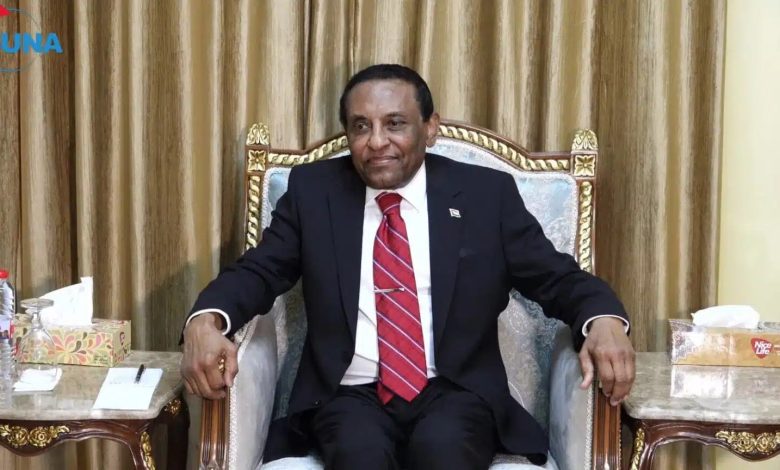The Upcoming Government: Economic Demands Amid Political Challenges

Sudan Events – Agencies
The Sudanese public awaits the announcement of the new government in the coming days, which is expected to be unveiled by Prime Minister Dr. Kamal Idris amid the political and economic challenges facing the country.
Last month, the President of the Transitional Sovereignty Council, General Abdel Fattah Al-Burhan, decided to appoint a Prime Minister after a long vacancy of more than three years, during which the position was only held on an interim basis.
Upon assuming office, Idris dissolved the previous government and tasked undersecretaries and secretaries-general with handling ministerial affairs until the new cabinet is formed.
The Prime Minister has decided to reduce the number of ministries from 26 to 22.
However, the steps toward forming the new government face several obstacles, most notably the ongoing war that has lasted over two years and its economic and social consequences, along with the complexities arising from interpreting previous agreements signed by the former government with what is now referred to as the “peace parties.”
After taking the oath of office before the head of the Sovereignty Council, Kamal Idris pledged in a speech to serve the nation and uphold the principles of justice, peace, the rule of law, and sustainable development.
Idris emphasized that the most urgent national priority is Sudan’s national security and the state’s authority by eliminating rebellion and insurgent militias. He added, “We urge the countries supporting the rebellion to stop planning, financing, and cooperating in these efforts.”
The transitional Prime Minister also announced that the government’s agenda for the coming period will focus on comprehensive national recovery and inclusive Sudanese-Sudanese dialogue that excludes no one, as well as the rejection of regionalism and racism.
He pledged to manage the transitional period and the executive body with high efficiency and effectiveness, noting that the focus will be on restoring stability, peace, and security throughout the country.
As speculation intensifies about the list of nominated ministers and officials, it is clear that taking office will not be easy due to the severe economic challenges, which are worsened by the ongoing instability that continues to negatively affect key economic indicators.
With the continued instability of the Sudanese pound against foreign currencies in parallel market trading and a surge in inflation in May to 146.30%, the foremost demands on the new government are economic.
Economic affairs journalist Khalid Saad stated that the new Prime Minister will face major economic complexities, most notably the challenge of managing a wartime economy and balancing war costs with service provision.
In his interview with Al-Muhaqqiq, Saad pointed out that the political framework will be crucial to any of Kamal Idris’s efforts on the economic front, especially in securing, managing, and protecting resources.
Saad expects that electricity will be a top priority, along with marketing agricultural output—whether for export or domestic markets—highlighting the importance of boosting consumer purchasing power as a key driver for revitalizing other sectors, particularly services.
He noted that Idris will likely rely on gold export revenues, since taxes require a productive sector that has been severely damaged and suffered significant losses due to the war.
Saad warned that Idris will face many complications, some inherited and others caused by the war, which necessitates a political breakthrough to implement any comprehensive, agreed-upon economic plan.
Meanwhile, economic expert Waleed Daleel believes Kamal Idris must form a lean government.
He explained that keeping governments bound by traditional systems and bureaucracy will inevitably lead to negative outcomes.
Daleel stressed the importance of creating a lean government through rapid and effective responses, major transformations in structure and internal processes, reinventing relationships with society, employees, and partners, and seizing opportunities to achieve goals.
Speaking to Al-Muhaqqiq news site, Daleel stated that “a lean or agile government is a management approach aimed at increasing the government’s ability to adapt and respond to rapid changes in its environment—whether economic, social, or technological.”
He highlighted the importance of adopting an approach based on experimentation and learning, where new ideas and solutions are continuously tested and evaluated with lessons learned along the way.
Daleel urged the new government to prioritize citizens’ needs and strive to deliver services that meet those needs effectively. He also emphasized empowering and authorizing employees to make decisions, which contributes to increased efficiency and innovation.
He called for leveraging modern technology to streamline processes, improve service delivery, and provide online access to government services to save time and effort.
Daleel concluded by stressing the importance of effective crisis and disaster response through specialized and collaborative task forces, while simultaneously working to improve the quality of healthcare services by developing systems and training medical staff.
Source: Al-Muhaqqiq News



